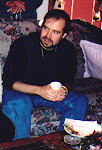I posted this at my book blog, but I'll repost it here since I've been too busy trying to write my story to blog as must as usual. I just finished book 4 on the year and am currently reading two more while I plod through my story.
This one is about pro wrestling:
Approximately once a year, I have a weird craving to relive the old days when I watched pro wrestling as a kid. We even once organized "viewings" of Wrestlemanias I through III at rotating locations within the last few years. (I will spare naming all involved in this delicious travesty of taste.)
This makes me neither proud nor ashamed. It really just amuses me.
I don't watch wrestling today. I don't enjoy what it has become. Hell, I laugh at 80s wrestling today and enjoy it now for very different (mostly mocking and nostalgic) reasons. But, for the second year in a row, I read a book about old-school wrestling from the days of my youth. This year, I read "Hitman," by Bret "The Hitman" Hart.
Ironically, I used to hate Bret Hart and his evil Hart Foundation. I loved the British Bulldogs, who were arch rivals with the Hart Foundation.
"Hitman" is a great book. It takes you into the "cartoon" world of pro wrestling. I learned a lot about the history of wrestling, and, most interesting, how it works behind the scenes. Hart takes the position that the wrestling business grinds its workers up and spits them out. I think there is some truth to that, but that there is also a tendency for unstable people to explore such a career. There is definitely truth in both perspectives.
The stories are funny, depressing, strange and just odd at times. I recommend reading this book near a computer so you can youtube the various matches he describes in detail. For example, I watched Hart take the kick to the head that ended his career. I also watched the online footage of the "Montreal Screwjob," complete with Vince McMahon wobbling out of the locker room after being knocked silly by Hart.
Although the "Montreal Screwjob" has been a source of great sympathy for Hart, I actually began to think of how Hart may have put himself over a little too well in the book. My take: A promoter has to deal with moody, roided up alpha-males on a regular basis. He has a business to run and didn't get rich by letting wrestlers who decided to go to his rival (WCW) while champion keep the belt and march out triumphant. Promoter lies (not OK, but also... well, Hart makes it clear wrestlers are a bit moody and difficult) and screws over his champion. In the process he damages the goods being received by the rival and collects enough checks to more than pay for the broken jaw.
Pardon my sarcasm, but being "screwed" out of a title defense while 1) leaving the company and 2) ITS STAGED didn't garner as much sympathy from me as I know others feel about this incident. Sorry, but he was 5 time champ because that got ratings. He was a good "wrestler" in that he preformed well, but popularity is what mattered. Stuff happens.
Most interesting to me were the stories of what some of my favorites were like behind the scenes. Andre the Giant, Hulk Hogan, Macho Man, Dynamite Kid, etc. I also loved the stories of the road and all the ribbing. Just kinda guy stories. It was a fun book, but I can't get all broken up about losing a belt that changes hands based on projected ratings draws. Shoot me.
As for steroids, Hart basically makes the strong case that a career would be over without them for someone of his stature (he wasn't exactly a giant). I took this to mean he simply used the "recommended" dosage. It was that or a different career... he rolled the dice and got rich. He only mentions it once when he decided to do it and never again brings it up, although its implied he was on them his whole career (never explicitly says so, though). He later confuses his own use by suggesting he was a desired champ because he wasn't a roided up freak like so many others at a time when people were angry about steroids. I guess its appropriate my next book is about self-justification.
Overall, a fun read. Much longer than expected, and he has some points to make. Much like actual wrestling shows, it's like reading 500 pages of one long description of a train wreck. You see all the twisted metal and all the carnage vividly after reading this book.
Thursday, February 11, 2010
Subscribe to:
Comments (Atom)




